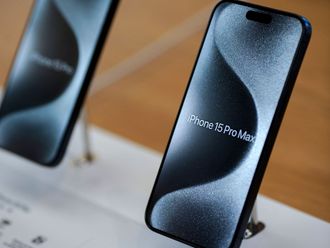Budapest: Acer's chairman J.T. Wang on Saturday said he did not expect the current global financial crisis to affect the personal computer (PC) market, despite what he called "the threat of recession in almost every country".
"We don't see a significant impact. Acer is growing at a healthy pace and so are our many brands," he said. "People need PCs to do business, communicate and enjoy life." Wong's remarks were parted of a pre-recorded message shown at a press conference in Budapest.
Gianfranco Lanci, Acer's CEO and President, did say that Gateway, a company brand that operates mainly in the US, could be affected by any downturn, but said the company has not seen any impact on sales over the past three weeks and any downturn in the US market is likely to hit all PC manufactures.
"The US is still important, but Europe, the Middle East and Africa [EMEA] is the largest region and will continue to be the largest market for the next three to five years," Lanci said, citing Acer's history of strong sales in that region.
Acer also announced its financial results for the first half of 2008, which included consolidated revenue of $8.14 billion (Dh29.93 billion), a growth of 31 per cent year-on-year.
Strong position
According to Gartner, a firm that tracks PC sales, Acer has strengthened its position as the third-largest PC maker in the world and is now the second-largest manufacturer of notebooks. The company has made several acquisitions over the past year, including Gateway, Packard-Bell, and eMachines, to help boost its market share.
Acer also announced a new multi-brand strategy that aims to leverage its recent acquisitions.
The company plans to market its Acer-branded machines to customers looking for the latest generation technology, such as ultra-mobile or business laptops and high-end gaming machines. It will market its Gateway and Packard-Bell brands to be more friendly to the general consumer, with Gateway addressing the US market and Packard-Bell focussing on Europe. The eMachine brand will be geared more towards consumers looking for basic functionality.










